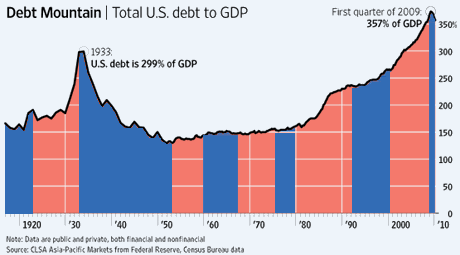If you’re a writer or journalist and you quote someone selectively or out of context so egregiously that you can twist their words to mean the very opposite of what they actually convey when they’re quoted in full or in context, what you have done is not just mischievous or aggressive, it’s outright wrong. If you’re a professional, then you’ve committed an act of professional malfeasance.
And if you get away with this sort of stunt repeatedly, despite being exposed and shamed for it, then you are pulling off a grand heist — stealing the credibility of larger media and government institutions that continue to pay attention to you.
This, in a nutshell, describes the challenge Andrew Breitbart has presented to the world of journalism, first with his ACORN deception and now with his Sherrod stunt. So far, journalism is failing to meet it.
By this point, Breitbart ought to be an object of snorting derision in the journalism profession. He ought to be shunned by respectable news organizations and mocked in public. He deserves the sort of ostracism that until recently was reserved for serial plagiarists.
Yet look at how two post-mortems of the Sherrod affair framed their presentation of his role.
Listen to this lead All Things Considered story on NPR, as Ari Shapiro sums up the meaning of Breitbart’s behavior:
There has been a pattern of conservative activists blurring the line between journalism and advocacy, and doing it with striking success.
This is precisely not the problem with what happened to Shirley Sherrod. What’s wrong with Breitbart’s work has nothing to do with the fact that he is a partisan journalist rather than an “on the one hand, on the other hand” style journalist. The problem with Breitbart is not that he is an activist in journalist clothes, but rather that he is a serial purveyor of deceptions who is somehow still viewed as a legitimate source by some of his colleagues in the media.
Here is how Politico framed its take on Breitbart’s role in the Sherrod story (in a piece that also talked about Tucker Carlson’s stories on the Journolist emails). “The combative Breitbart” caused an “uproar,” but his “revelations proved decidedly less incendiary when the context of the comments was added. And both [Breitbart and Carlson] have been criticized for failing to provide, or even trying to provide, that context.”
No, Politico, Breitbart’s revelations didn’t prove “decidedly less incendiary.” They proved wrong — deliberately counter-factual and embarrassingly misleading. Breitbart is not merely combative and uproarious. He is malicious and dangerous. A handful of journalists have come close to acknowledging this: Later on the same All Things Considered, Jon Alter called him “a notorious smear artist.” And over at Fox News, Shepard Smith describes him as untrustworthy. But mostly, Breitbart gets off with being described as a rambunctious bad boy whose behavior is the result of overly ardent partisanry rather than simple unfairness and lack of decency.
If there is any remaining doubt about how fully Breitbart deserves a full-on shun from the entire media world, just take a look at the laughably inadequate correction notice he has appended to the original report on his site about Sherrod:
While Ms. Sherrod made the remarks captured in the first video featured in this post while she held a federally appointed position, the story she tells refers to actions she took before she held that federal position.
The implication is: “Our story holds up, Sherrod said what we said she said, but we goofed on this little detail of her employment at the time.” Whereas a real correction would read more like “Our original story was wrong. We quoted Sherrod to suggest that she drove an old white couple off their farm because she was a racist. In fact, she helped that couple hold onto their farm and used the tale to argue against racism.”
Really, though, if Breitbart had any self-respect he would withdraw the whole story and apologize to Sherrod. Since he’s never going to do that, why should he have a future as a participant in public discourse?
BONUS LINK: David Frum explains why the conservative media won’t hold Breitbart to account.
MORE LINKS: Not surprisingly, the toughest media voices on Breitbart come from the ranks of those who wear both pro-journalist and blogger hats. Josh Marshall makes a similar point to mine: “For anyone else practicing anything even vaguely resembling journalism, demonstrated recklessness and/or dishonesty on that scale would be a shattering if not necessarily fatal blow to reputation and credibility.”
I’d also point you to the chorus of criticism from the Atlantic’s stellar blogging bench (hat tip to the Atlantic’s Bob Cohn). Josh Green highlights Breitbart’s role as “ringmaster”: “It’s hard for me to see how the media can justify continuing to treat Breitbart as simply a roguish provocateur. He’s something much darker.” And Jim Fallows makes the McCarthyism parallel explicit: “Silver lining: the possibility that for the Breitbart/Fox attack machine this could be the long-awaited ‘Have you no sense of decency?’ moment.”
ALSO: Rogers Cadenhead with some of Breitbart’s backstory: “What good is being a self-employed media mogul if you can’t admit you fucked up and try to make it right?”
And Greg Sargent asks: “Has any news org done a stand-alone story on the damage the Shirley Sherrod mess has done — or should do — to his credibility?”


